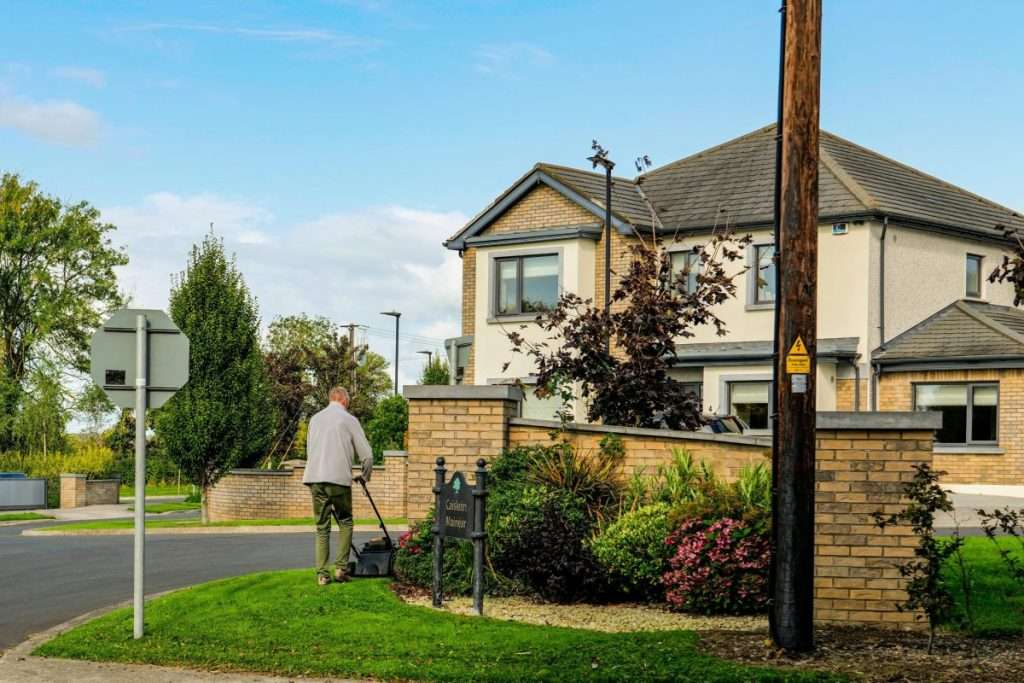What Are Recorded Covenants?
Understanding the rules that shape your neighborhood in Macon and throughout Georgia. Clients often ask the question: what Are Recorded Covenants? When you purchase a home in a community, you are not just buying the property itself. You are also joining a neighborhood with its own rules, responsibilities, and protections. One of the most important legal tools that defines how a neighborhood operates is the recorded covenant. These covenants help preserve property values, maintain a consistent appearance, and ensure that the community develops in a harmonious way.
Recorded covenants are rules tied to a property and filed in county land records, which means they bind current and future owners until changed or terminated.
Definition and Purpose
A recorded covenant, sometimes called a restrictive covenant or covenant running with the land, is a legal agreement that outlines specific conditions or restrictions tied to a property. These covenants are officially filed with the county land records office, which means they become part of the property’s permanent record. Once recorded, they apply to every future owner of that property until they are legally modified or terminated.
The main purpose of recorded covenants is to maintain order and protect the character of a neighborhood. They can address everything from how a home looks to how the land is used. While they may feel restrictive at times, these covenants can help preserve a community’s quality, aesthetics, and market stability.
In Bibb County and nearby communities, declarations are often recorded at the start of a subdivision so that every lot is subject to the same baseline standards.
Common Examples of Recorded Covenants
Recorded covenants can cover a wide range of topics depending on the community and its goals. In Macon, Georgia, and surrounding areas, you might see covenants that include:
- Architectural standards for new construction or renovations
- Rules regarding fences, sheds, and exterior paint colors
- Restrictions on short term rentals or home based businesses
- Requirements for landscaping and lawn maintenance
- Guidelines for parking recreational vehicles or boats
- Limitations on subdividing or altering a lot
A declaration may require review by an architectural committee before adding a backyard structure. Submitting a simple plan up front can save time and prevent costly corrections later.
These details are usually found in the community’s Declaration of Covenants, Conditions, and Restrictions. When a developer first establishes a neighborhood, they record this document in the county records so that every lot owner is bound by its terms.
How Covenants Are Recorded and Enforced
In Bibb County and throughout Georgia, the process begins when the developer or homeowners association files the covenant documents with the Clerk of Superior Court. Once recorded, they appear in the public records associated with each lot. This recording process ensures that anyone who purchases a home in that subdivision is legally aware of the restrictions before closing.
Enforcement typically falls under the authority of the homeowners association or, in some cases, neighboring property owners. If someone violates a covenant, such as by painting their home an unapproved color or adding an unauthorized structure, the association can issue a notice, levy fines, or seek a court order requiring compliance. Because these covenants are legally binding, courts in Georgia generally uphold them as long as they are reasonable and uniformly applied.
Keep the exact recording information with your closing documents. The book and page or instrument number makes it easy to reference the correct version of your covenants.
Duration and Modification
Recorded covenants do not last forever. Most have a specific term, often between twenty and thirty years, with automatic renewal clauses unless the homeowners vote to change or terminate them. In Georgia, modifications must follow the procedure outlined in the covenant document itself. This usually involves a certain percentage of property owners approving the amendment and then recording the new version with the county.
When communities mature or property use changes, homeowners sometimes choose to revise outdated rules. For example, older covenants may restrict solar panels or modern home additions that were not common when the neighborhood was developed. Updating these covenants allows the community to stay relevant while still protecting its character.
Check for amendment history. An older declaration may have been updated by recorded supplements that change rental rules, pet limits, or architectural guidelines.
Why Recorded Covenants Matter in Real Estate
For both buyers and sellers, understanding recorded covenants is essential. They can influence everything from your home’s resale potential to your day to day lifestyle. A buyer who loves to travel in an RV may be surprised to find that a neighborhood does not allow long term driveway parking for recreational vehicles. A homeowner hoping to rent their property short term might discover that the covenant prohibits it entirely.
From a seller’s perspective, covenants can add value by assuring buyers that neighboring properties will be well maintained. A neighborhood with clear and enforceable covenants often attracts more stable property values and consistent community appeal.
Confirm rental policies, verify parking and storage rules, review architectural approval steps, and note any fees or fines before you submit an offer.
Finding and Reviewing Covenants Before You Buy
Before purchasing a home, your real estate agent or closing attorney can help you review any recorded covenants that apply to the property. These documents are public records, and in Bibb County they can be obtained through the Clerk of Superior Court office or through online search tools. Reading them carefully ensures that there are no surprises after closing.
Joanna “JoJo” Jones and her team make it a priority to help clients understand the details of each property, including any recorded covenants that may affect future plans. Whether you are moving to a historic district near Vineville, a golf community in Lake Wildwood, or a new development on North Macon’s growing corridor, JoJo ensures that you know exactly what to expect before you sign.
Have questions about a specific neighborhood covenant set. JoJo will help you locate the recorded documents, interpret key provisions, and align your purchase with your lifestyle goals.
Final Thoughts
Recorded covenants are not just legal documents. They are part of the foundation that shapes a community’s identity. They balance personal freedom with neighborhood harmony and help protect the investments of everyone who calls that neighborhood home. By understanding how these covenants work, you can make better decisions, avoid potential conflicts, and fully enjoy the benefits of living in one of Macon’s many beautiful communities.
Disclaimer: The information in this article is for general educational purposes only and does not constitute legal advice. Buyers and homeowners should consult an attorney for guidance specific to their property or community.



